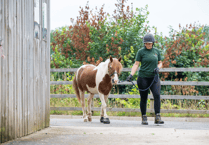A new report published on 18 November has found that the South West of England could once again support European wildcats — more than a century after they vanished from the region. Conservationists say the findings mark a vital step forward in securing the future of the UK’s most critically endangered mammal.
The two-year study, conducted by the South West Wildcat Project, concluded that a sustainable population could flourish across parts of Devon and that public backing for reintroduction is strong. Surveys carried out by the University of Exeter revealed that around 80% of respondents supported the idea of wildcats returning to the region.
The project — led by Devon Wildlife Trust in partnership with Forestry England and the Derek Gow Consultancy — investigated the potential impacts of reintroduction on communities, other wildlife, farming and pets, as well as whether a long-term wildcat population could be sustained. The full report is available on the Devon Wildlife Trust website.
European wildcats, sometimes known historically as “woodcats”, were once widespread across England, Scotland and Wales, including throughout the South West. But centuries of persecution, alongside the destruction and fragmentation of their woodland and rough grassland habitats, saw them gradually disappear. The last wildcats in the South West are thought to have survived until the mid-19th century.
Cath Jeffs, project lead for the South West Wildcat Project at Devon Wildlife Trust, said the findings offer genuine hope. “It’s exciting that this report suggests wildcats could be part of the region’s nature once again,” she said. “A lot of work remains to be done, but honest and open dialogue with stakeholders will be key.”
Today, the UK’s only remaining wildcats live in the Scottish Highlands, where as few as 115 individuals are left in the wild. Despite being granted legal protection in 1988, the species is now classified as critically endangered.
Earlier research by the Vincent Wildlife Trust suggested the South West offered some of the most promising habitat for a reintroduction in England. The new report confirms that mid-Devon, with its well-connected network of woodlands and suitable habitat, provides an ideal landscape for wildcats to thrive.
Crucially, the study found that wildcats pose no significant threat to endangered species such as dormice or bats. Their diet largely consists of small mammals — including voles, rats, wood mice and rabbits — and they pose no danger to people, livestock or pets. Poultry can be protected using the same methods deployed against foxes.
Abby Parravani, a Forest Planner at Forestry England, welcomed the findings. “I’m thrilled that the feasibility report shows the suitability of South West England to reintroduce this missing native species,” she said. “We’re looking forward to the next phase of the project.”
Independent research into public opinion, led by Dr Roger Auster at the University of Exeter, echoed the report’s optimism. He said wildcat reintroduction appears “socially viable”, provided stakeholders continue to be closely involved.
While no release is imminent, Devon Wildlife Trust and its partners intend to continue planning and fundraising for a future reintroduction. An online talk, Wildcats: could the UK’s rarest mammal make a return to Devon?, will be given by Cath Jeffs at 6pm on Thursday 4 December. Registration is free via the Trust’s website.





Comments
This article has no comments yet. Be the first to leave a comment.